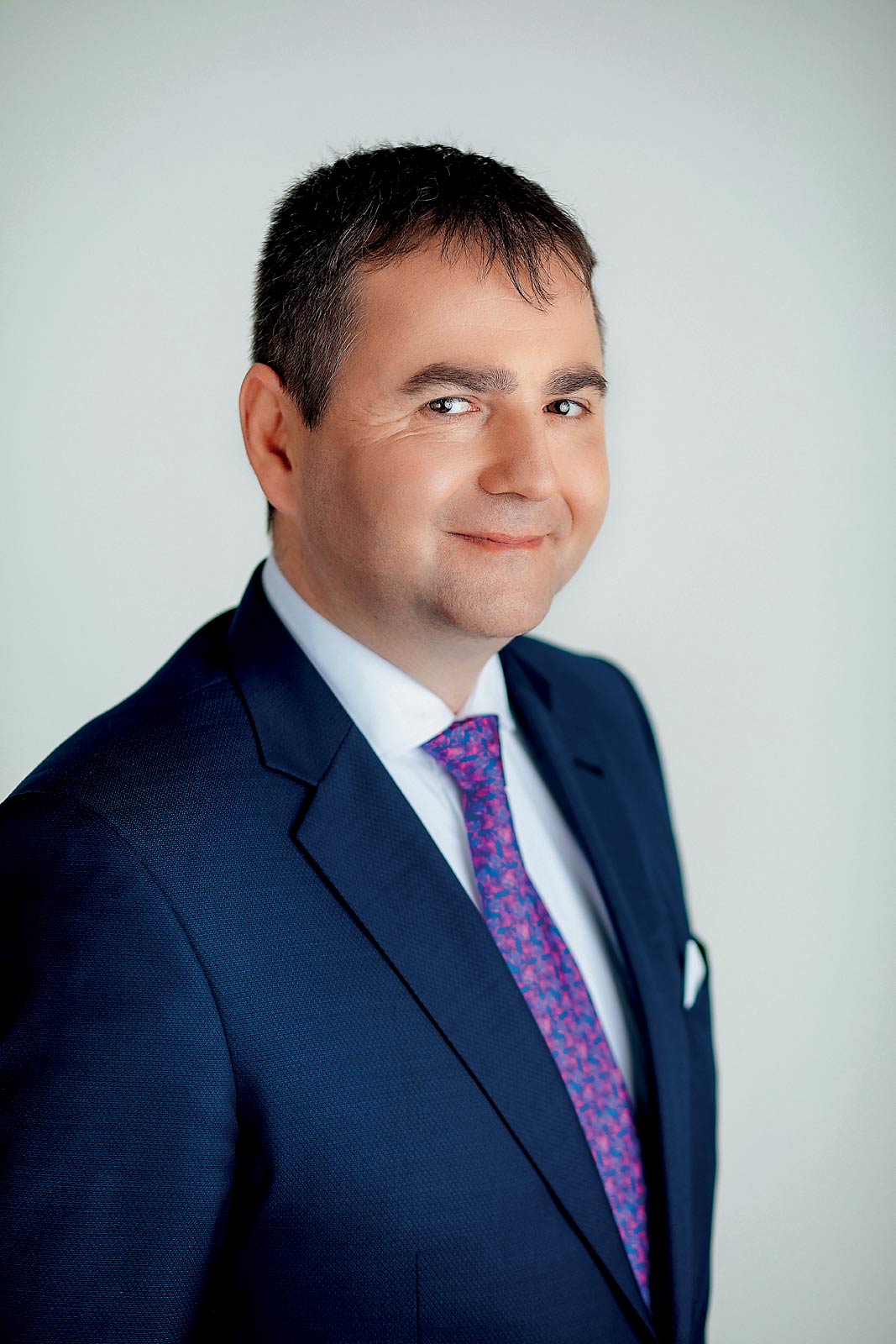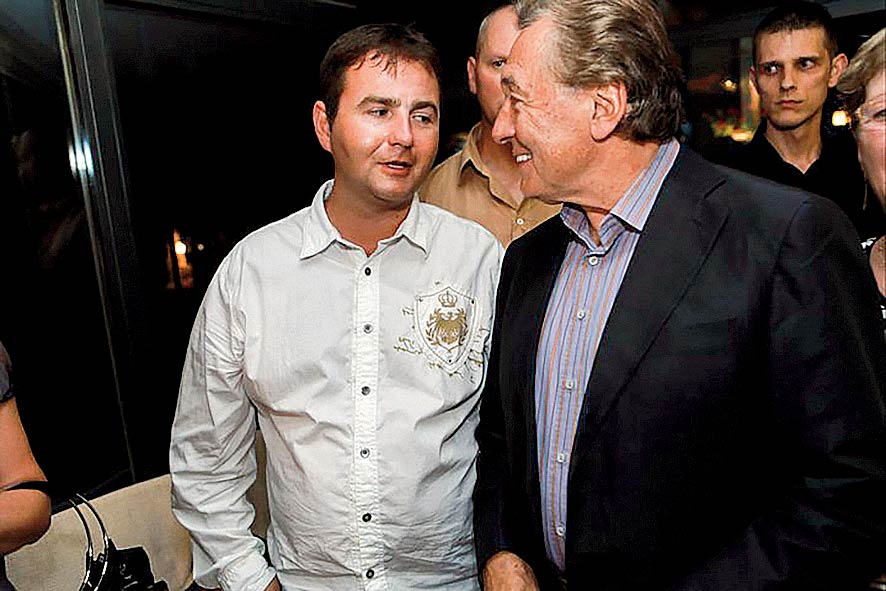As I was speaking to Marián Kéry, MP in the Slovak National Council for SMER-SD, he had his hands full with finalizing the tickets for the municipal and regional elections set to take place in Slovakia this October. After all, he himself is running for MP in the Nitra Self-governing Region.
You have been in politics for 17 consecutive years. Does it not get to you sometimes?
I was very lucky to have been born in a very small municipality of fewer than 500 people called Červený Hrádek, located in the Zlaté Moravce region. And my father would take me along to different public meetings and tell me about the inner workings of municipal life at home. I was elected a municipal representative for the first time before I even turned 20. And I defended my post four years later. So I got into politics very early. In 1999, the Smer party manifested from within the political landscape and Robert Fico's views spoke to me to such a degree that I decided to become a member in 2001, and was appointed regional chairman a year later. So I have been the leader of the Smer regional office for the Zlaté Moravce region since 2002. And in 2005, I was appointed representative of the Nitra Self-governing Region and became an MP of the National Council of the Slovak Republic in 2012. I feel that the way I gradually moved up was beneficial. And whether I am burnt out? As for municipal and regional elections, I feel no burnout whatsoever. I find the job fulfilling because it makes sense, there is no senseless politicking and results are quick to manifest: modernized schools, reconstructed roads, implemented social services...
You are very vocal about the situation in Ukraine. You have also quoted Jeffrey Sachs on your Facebook page, saying that the war needs to be stopped by action. What exactly do you mean?
You know, certain politicians, not only in Slovakia but throughout Europe as well, talk about the need to defeat the Russian Federation with military power. Do they even realize that the Russian Federation has nuclear weapons? Can such a country be defeated with military power? We must be out of our minds! I have said this a hundred times already but I will have to do so once again because I often get misquoted – I consider the Russian Federation launching a military attack against its neighbor, Ukraine, to be a gross violation of international law and I stand wholly against it. On the other hand, however, all we talk about now is the supply of arms to Ukraine and sanctions against the Russian Federation without a second thought for how dangerous and detrimental this is to us. We are not hurting the Russian Federation. Energy commodity prices have risen, and the Russian Federation has other customers besides the European Union or soon will have. That is the first thing. The second is that it is once again the United States making money by supplying arms and liquefied natural gas. We are paying extremely high prices for electricity and gas and, despite these high prices, we may run out of gas during the winter. The fundamentals are gone from the playbook of European politicians – making both parties, Ukraine and Russia alike, sit down at the same table and come to an agreement on how to end the war. If President Zelenskiy thinks he can dictate how exactly this war will end, he is sorely mistaken. Both sides will have to make concessions. To be very honest, I was disappointed with how France and Germany dealt with the situation. Macron and Scholz both took a good, rational stance but received very harsh criticism from the international community and media alike, culminating in their complete capitulation. I expected something from Israel, for instance, but nothing happened. The only one going against the flow here is Turkish President Erdoğan. And I am not trying to praise him here. There are many things we could criticize Turkey for – a rampant authoritarian regime, for one, but it played a rather positive role in this conflict between the Russian Federation and Ukraine. So what I mind is the fact that we in the EU, including Czechia and Slovakia both, behave with a herd mentality without a second thought for the energy security of our countries.
Speaking of the energy crisis – there have been all sorts of negotiations on the EU level, while many individual countries are also taking measures. Are the measures of the Slovak government sufficient?
The Slovak government is currently busy dealing with itself. Eighty percent of its energy goes to solving inter-party and inter-coalition issues. It culminated in the SaS party, under the leadership of Richard Sulík, giving an ultimatum that if Richard Matovič, chairman of the strongest political party, Oľano, doesn't resign as Minister of Finance, their ministers will resign instead. But I feel that Sulík wants to primarily leave because he can clearly see that a) the government is unable to handle the position it is in and b) the Slovak people have no faith in it. Up to 80% have no faith in the current government! And the second issue is – and these are my personal views, not party ones – that Sulík is mainly afraid of the energy situation, specifically gas, being mishandled. Because the winter is coming and he does not want that on his head. So he is trying to back out of this government as soon as possible. If we compare this to Germany, Austria, not to mention Hungary, but even what you have in Czechia – your government has at least been trying to take some measures, you and the Germans have been talking about lowering taxes on gas, which is an actual way to help. Here in Slovakia, Mr. Sulík has been saying that we should let the free market naturally resolve the issue, which I do not agree with. If we were in the government, we would definitely take a different, much more concentrated approach. Many Slovak people are hoping for the government to fall, but I am a political realist and I do not think that will happen even were the SaS party to leave. I feel that the only way is a referendum. Madam President has already managed to stymy one, and now we have delivered her another petition with roughly 450 thousand signatures. We shall see if she approves it and this referendum will be allowed to take place.

Marián Kéry (born February 6, 1978, in Zlaté Moravce) is an MP in the Slovak National Council for SMER-SD.
He graduated from the Faculty of Philosophy at Constantine the Philosopher University in Nitra, specializing in history and the Russian language. He is currently studying law at the Matej Bel University in Banská Bystrica. Having finished his bachelor's thesis, he is starting the first year of his master's degree studies.
He started out as a teacher at the Janko Kráľ Grammar School in Zlaté Moravce, later going on to teach at a primary school in Červený Hrádek. He then worked at the Nitra Regional Land Registry. Following that, he had a short stint as director of the Zlaté Moravce Sports Facilities Administration. He has been an MP since 2012 running.
Kéry is married, he and his wife Adriana have two daughters – Adriana (5) and Agáta (16 months). He enjoys sports very much, specifically football and tennis. He used to play football himself, becoming a football referee at 18 but was forced to give it up after 14 years due to a knee injury. He still plays tennis regularly. He also enjoys history and the occasional play in the Andrej Bagár Theater in Nitra. He likes movies as well, including old Czech movies and shows.

Meeting Karel Gott.